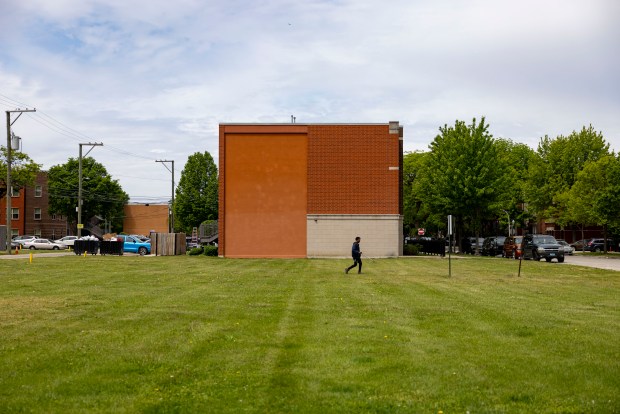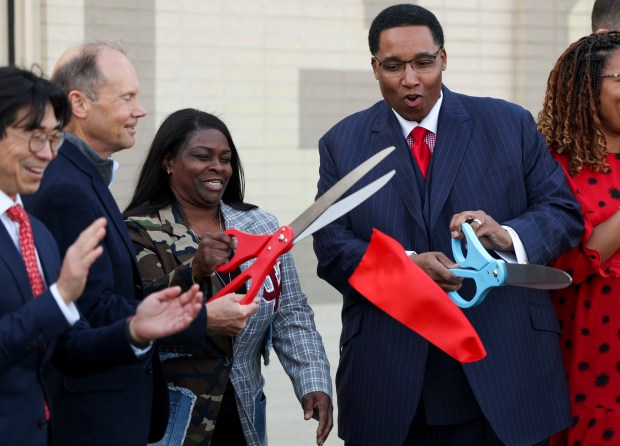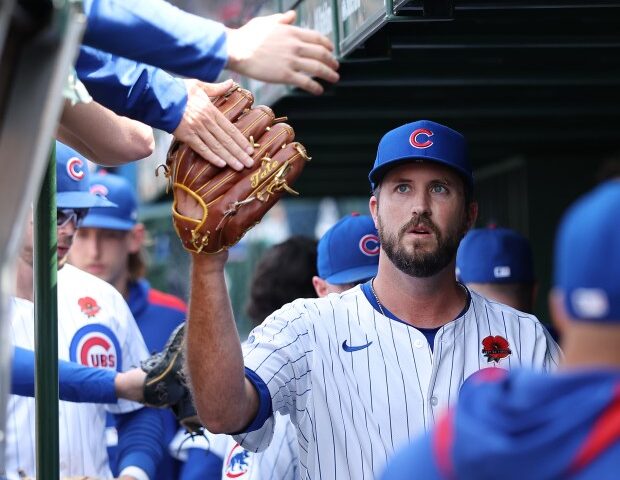The Chicago Housing Authority board approved a land sale on Tuesday to a private developer to construct 23 town homes, at least four of which will be considered affordable, despite opposition from many housing and community advocates.
The 23 lots will be sold to Related Midwest for an estimated $460,000, a number that is based on current land valuations minus expected environmental remediation costs, CHA development officials said in an interview. That number could change with future appraisals. The officials said that CHA will receive a portion of the profits from the home sales as well.
All money brought in from public housing land sales is considered dollars earmarked for public housing per U.S. Department of Housing and Urban Development regulations and, therefore, should go toward preserving or developing new CHA units, CHA development officials confirmed. But, because CHA is a part of a small subset of housing authorities nationally that is able to use its federal dollars with greater flexibility, these funds could go toward non-housing purposes.
Ald. Jason Ervin spoke in support of the land sale taking place in his 28th Ward at the board meeting, saying that a “commitment was made to residents” in the ward to “not repeat challenges that were created” when there was more public housing in the area.
“This is a component that was promised to the residents of the Near West community” to build for-sale housing to add to the mixture of existing rental and public housing in the area, Ervin said.
The new sale follows the recent opening of the Chicago Fire Football Club’s training facility, which sits on 23 acres of land that CHA has leased to the team — an agreement that was mired in controversy from its inception. A conflict has also recently emerged between CHA and Mary Baggett, president of the local resident council, over the rehabilitation work going on at the nearby Brooks Homes.
The town home development marks another pain point in the long-festering tensions between community advocates and residents who have criticized the housing authority for leasing public land for non-public housing purposes.
Asked by a board commissioner if he had talked with residents about this development, Ervin said that he had spoken with Baggett, who confirmed her support of the town home project with the Tribune. Some former and current CHA residents and many neighborhood advocates have been in disagreement with Baggett over CHA’s development plans in the Near West Side community.
CHA staff confirmed at the board meeting that it hosted multiple community meetings with residents to discuss the development and receive feedback. Related Midwest has partnered with local homebuilders, Melvin Bailey and Kamau Murray, who voiced commitments at the housing authority’s board meeting to hire residents to help with construction.
When CHA released its plan for the Greater Roosevelt Square neighborhood on the Near West Side in 2016, it was not perfect, said Don Washington, executive director of the Chicago Housing Initiative, a collective of nine community-based organizations, in a statement. It would not replace all the public housing units that were lost in the area when CHA tore down much of its public housing in the 1990s, but, he said, it provided housing for “some of the people the entire footprint was meant to house” and was affordable housing focused.
Now, Washington said, the new town home development represents “just the latest promise CHA has broken to the people of Chicago.”
“It is the next shameful chapter of a book of betrayals where we are promised that the CHA will receive proceeds from the sale of the land that it will use to some day build purely public housing somewhere,” Washington said. “This deal turns the CHA into a land bank for private real estate developers and the financial interests that fund them.”
John McDermott, a local public housing organizer, agreed with Washington.
“Although the land area involved in this deal is small relative to the huge Chicago Fire site, this represents yet another decrease in the amount of land where they can build mixed-income housing that includes replacement public housing units,” McDermott said in a statement to the Tribune.
CHA real estate officials said the homeownership opportunities were always included in the Roosevelt Square redevelopment plan but got tabled from being included in an earlier phase because of economic conditions in 2008. The most recent development phase in the community includes 207 new rental units, with 40 affordable units, 75 CHA units and 92 market rate units. Agency officials said residents have been moving in, with a ribbon-cutting event scheduled in two weeks.
The town homes will now be built in three phases, with the first five town homes expected to come to market in the latter half of next year, CHA development officials said. The next two phases will likely begin construction in 2026 and 2027, respectively. The developers are guaranteed $70,000 from each home sale, CHA’s officials said, with the rest of the earnings being split evenly between the development team and CHA.
The affordable homes, one of which will be included in the first phase, will be available to buyers with incomes at or below 120% of the area median income. For a household of four, this would be $143,880, according to the Chicago Department of Housing.

The exact number of affordable homes will depend on real estate market conditions, CHA officials said, with the developers deciding if they will provide fewer units with deeper affordability or more units at less affordable prices.
CHA is also selling two small pieces of land, 0.05 acres and 1.24 acres, at its Altgeld Gardens community on the Far South Side to the Forest Preserves of Cook County and a nonprofit offering educational support services to youths, the By The Hand Club for Kids, respectively. The forest preserves will construct a new trail from Altgeld Gardens to the local boat launch and build restrooms on the site. The nonprofit will obtain parking and some other land surrounding a long-vacant historic building that it is in the process of obtaining from private owners. CHA will earn just under $30,000 from the sales.
Paul McKinley, a CHA resident, said at the board meeting Tuesday that he “takes issue with these properties being sold.”
“My issue is that the transformation plan is not being adhered to as far as residents being moved into these new houses,” McKinley said, referencing CHA’s Plan for Transformation, its 2000 pledge to tear down and rebuild tens of thousands of units of public housing for Chicagoans.
CHA’s interim board Chair Matthew Brewer said that the Plan for Transformation is “very important.”
“I don’t take it lightly,” he said. “Land is finite, and it is our biggest asset.”




